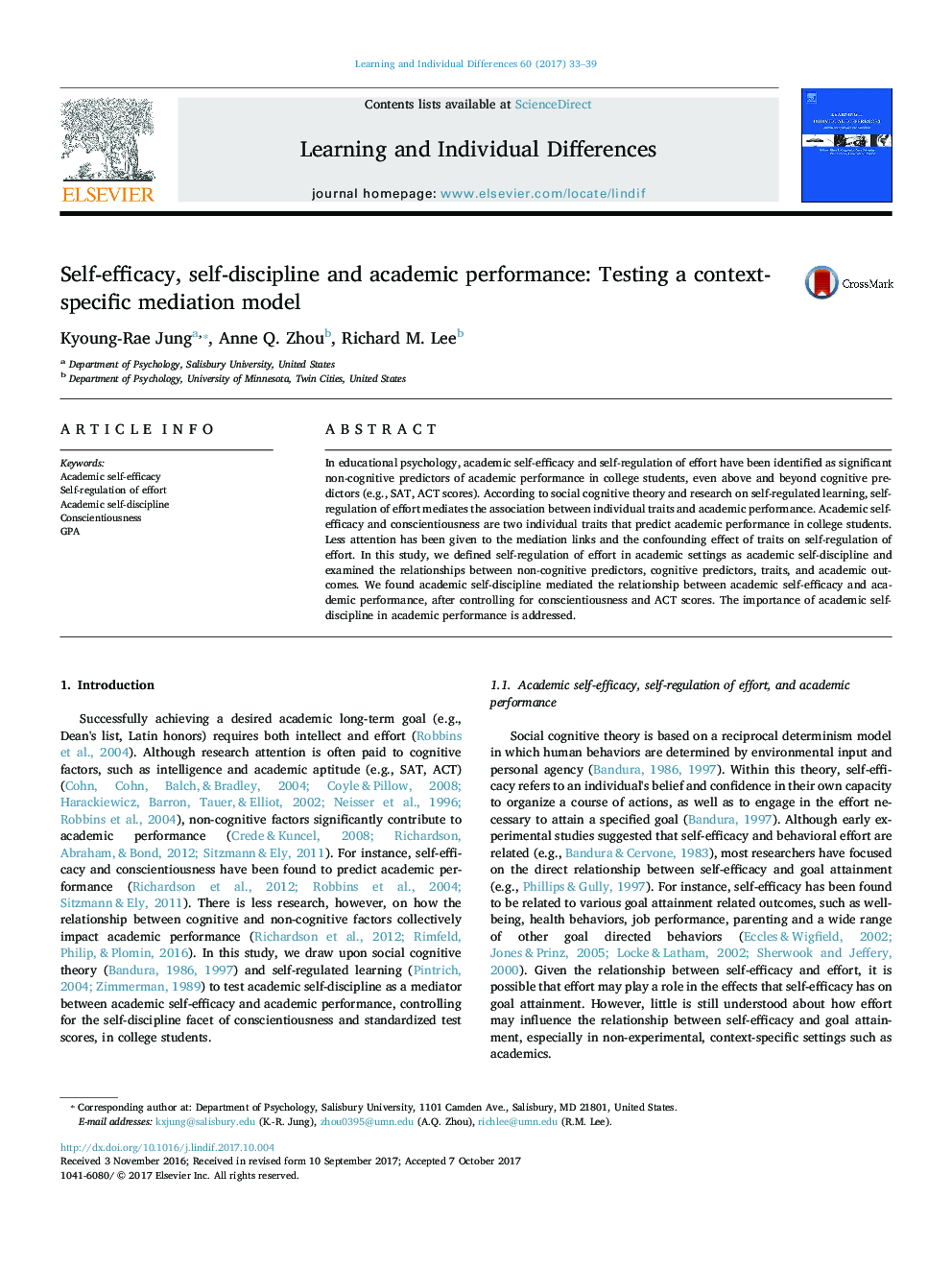| کد مقاله | کد نشریه | سال انتشار | مقاله انگلیسی | نسخه تمام متن |
|---|---|---|---|---|
| 4939952 | 1436363 | 2017 | 7 صفحه PDF | دانلود رایگان |
عنوان انگلیسی مقاله ISI
Self-efficacy, self-discipline and academic performance: Testing a context-specific mediation model
ترجمه فارسی عنوان
خودکارآمدی، خودکارآمدی و عملکرد تحصیلی: تست یک مدل میانجی خاص
دانلود مقاله + سفارش ترجمه
دانلود مقاله ISI انگلیسی
رایگان برای ایرانیان
موضوعات مرتبط
علوم انسانی و اجتماعی
روانشناسی
روانشناسی رشد و آموزشی
چکیده انگلیسی
In educational psychology, academic self-efficacy and self-regulation of effort have been identified as significant non-cognitive predictors of academic performance in college students, even above and beyond cognitive predictors (e.g., SAT, ACT scores). According to social cognitive theory and research on self-regulated learning, self-regulation of effort mediates the association between individual traits and academic performance. Academic self-efficacy and conscientiousness are two individual traits that predict academic performance in college students. Less attention has been given to the mediation links and the confounding effect of traits on self-regulation of effort. In this study, we defined self-regulation of effort in academic settings as academic self-discipline and examined the relationships between non-cognitive predictors, cognitive predictors, traits, and academic outcomes. We found academic self-discipline mediated the relationship between academic self-efficacy and academic performance, after controlling for conscientiousness and ACT scores. The importance of academic self-discipline in academic performance is addressed.
ناشر
Database: Elsevier - ScienceDirect (ساینس دایرکت)
Journal: Learning and Individual Differences - Volume 60, December 2017, Pages 33-39
Journal: Learning and Individual Differences - Volume 60, December 2017, Pages 33-39
نویسندگان
Kyoung-Rae Jung, Anne Q. Zhou, Richard M. Lee,
